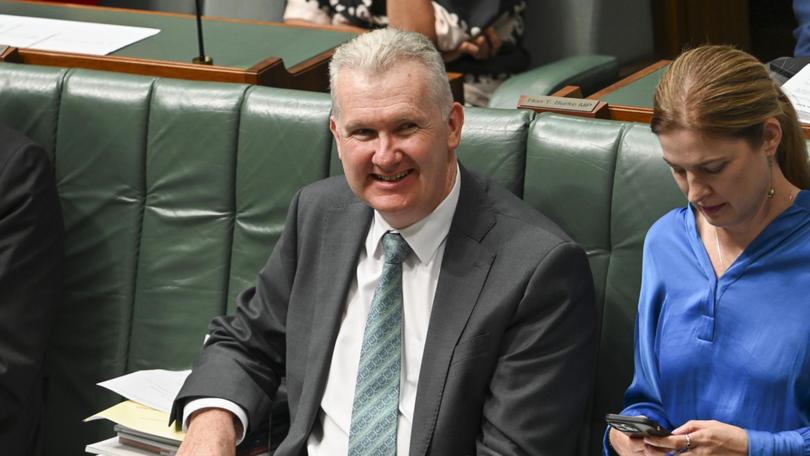Labor’s industrial relations Bill passes the Senate as business warns of economic hit
The “right to disconnect” is now law as Labor’s far-reaching Bill was rammed through the Senate on Thursday with a number of last-ditch deals on amendments.

Workers will get the right to ignore their bosses after hours and casuals offered a quicker path to permanent employment after the Albanese Government’s sweeping industrial relations Bill passed the Senate.
Business leaders and the opposition are warning the pro-worker Closing Loopholes Bill will tie up small businesses in red tape and harm the nation’s economic prosperity.
The remaining parts of the far-reaching Bill were rammed through the upper house on Thursday afternoon after Labor struck deals with the Greens and crossbench on a raft of amendments.
Sign up to The Nightly's newsletters.
Get the first look at the digital newspaper, curated daily stories and breaking headlines delivered to your inbox.
By continuing you agree to our Terms and Privacy Policy.“This legislation is really unnecessary,” Minerals Council of Australia chief executive Tania Constable told Sky News.
“We are weakening our economy; we are weakening business — we’re not going to get any more jobs in businesses.”
The second tranche of the Bill will make it easier and quicker for a casual worker to convert to permanent employment and establishes minimum pay and conditions for gig-economy workers, such as Uber drivers.
The so-called “right to disconnect” was stapled on at the 11th hour under a deal between Labor and the Greens, catching business leaders by surprise and leaving senators with less than 24 to scrutinise the finer details.
“Today is a good day for casuals, a good day for gig workers, a good day for truck drivers and people in road transport, and a good day for those workers who want to be able to know that when they are on their weekend and not being paid, they can enjoy their weekend,” Workplace Relations Minister Tony Burke said.
Under the new “right to disconnect” law, workers can refuse to monitor, read or respond to contact from their bosses outside of work hours — unless that refusal is considered “unreasonable”.
A range of factors including the reason for the contact, how it was made, the extent to which an employee is compensated for after-hours work and the nature of their job must be considered when determining what is reasonable.
Workers could apply to the Fair Work Commission to issue their employer with a “stop order” which, if breached, could result in hefty fines.
Shadow Workplace Relations Minister Michaelia Cash — who grilled the Government on the specifics of the Bill during debate on Thursday — asked for guarantees that the “right to disconnect” would not hinder businesses and the wider economy in her home State.
The wider Bill changes the definition of casual employment and allows casuals to request to become permanent after six months, rather than 12.
Independent senator David Pocock secured amendments after drawn-out negotiations with Mr Burke, including to allow bosses to refuse a casual conversion on “fair and reasonable grounds”.
Business Council of Australia chief executive Bran Black said the amendments made a “very poor law, less poor”.
“Overall, this is a piece of legislation that will take the Australian industrial relations landscape backwards, it reduces our overall prosperity. And our concern is that when you reduce that prosperity, ultimately, that translates into worse outcomes for families right around the country,” he said.
The Closing Loopholes Bill was split up late last year, after the Government struck a deal with the crossbench to rush through its controversial “same job, same pay” provision for labour-hire workers and to criminalise wage theft.
It is the second major package of workplace laws to pass under the Albanese Government after the Secure Jobs, Better Pay Bill was legislated in 2022.
Ms Cash warned businesses already struggling under rising costs and red tape that the worst was yet to come.
“If you thought, as a business in Australia, you were drowning under a deluge of red tape ... it is about to get worse thanks to Prime Minister Anthony Albanese.”
